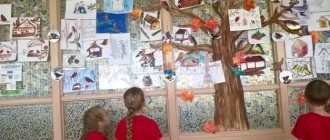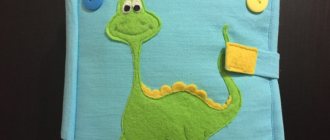Notes of parent meetings for grades 1-11.
Round table
“How to increase a teenager’s self-esteem and self-confidence”
(for parents of eighth grade students)
Objectives: to expand parents’ ideas about the importance of developing adequate self-esteem and self-confidence in adolescents.
Tasks:
- expand parents’ ideas about the reasons for the formation of both high and low self-esteem in students;
- talk about the possible consequences of developing different levels of self-esteem;
- familiarize parents with recommendations for developing adequate self-esteem and self-confidence.
Category of participants: teacher, educational psychologist, social educator, parents.
Stages
- Organizational. Content of the activity: the teacher organizes an environment that corresponds to the goals of the meeting, organizes interaction with parents for effective teamwork (i.e., decorates the room, prepares the necessary materials and equipment, makes an introductory speech, conducts games to welcome and emancipate the participants).
- Basic. Content of the activity: the teacher conducts the main work on the topic in the form of mini-lectures, games, exercises, discussions.
- Final. Contents of the activity: the results of the work done are summed up, its effectiveness is assessed, the participants express their wishes for the future.
Preliminary work:
- selection of test methods;
- student survey (Appendix 2).
Materials and equipment:
- tables and chairs (arranged in a circle);
- forms with diagnostic results;
- text of the letter “Father’s Repentance” (Appendix 1).
Progress of the meeting
The teacher invites parents to take their seats and says the introductory words: “Good evening, dear parents, I am glad to meet you.” I propose to start our meeting with an exercise.
- Exercise “Gifts” (creating a friendly atmosphere, emancipation of participants).
All participants in the parent meeting speak in a circle: “What would I like to give to the person sitting next to me?” It is called something that, in the speaker’s opinion, could truly please the person to whom such a gift was given, for example, a good mood, good luck, joy, good news, etc. Then the one who was “given” thanks and explains whether he would really be happy with this gift and why.
3 Teacher (motivating parents to expand their psychological and pedagogical knowledge.)
The future, successes and failures depend on self-esteem. In other words, self-esteem determines what your child will be like in life. We still have time to change things for the better. Now our children are going through the most difficult period, the period of growing up, when the need to assert themselves and find their place in life is especially evident. Under the influence of peers, one develops one’s attitude towards oneself and one’s self-esteem. I want to start our communication with one letter. It was published last century in an American magazine and caused a real flurry of responses. More than a hundred years have passed, but many recognize themselves in the author. (Reading William Livingston Larned's letter "A Father's Repentance") (Appendix No. 1).
4. Conversation-discussion (creating conditions for actualizing feelings of empathy, an outside view of one’s own parental position, parenting style).
— What feelings and sensations did you experience while reading the letter?
— What made you think, reconsider some things?
— What advice would you give to young parents?
Teacher's comment.
Amazing letter. What kind of self-esteem does the father have for his wrong actions towards his little son? It’s good that he realized this before his son grew up. How to behave when children grow up!? There are no exact answers, there are only tips.
Today we will talk about the self-esteem of our children and its role in the formation of personality. Why did you decide to talk about this today? Because many children on the threshold of leaving school for adulthood are not entirely confident in their actions, have low self-esteem, while others have clearly overestimated self-esteem. In the psychological dictionary , self-esteem
interpreted as “a person’s assessment of himself, his capabilities, qualities and place among other people.” Self-esteem is an important regulator of behavior. A person’s relationships with others, his criticality, self-demandingness, and attitude toward successes and failures depend on it.
5. Reporting test results. Speech by a teacher-psychologist. The psychologist informs parents about the test results “Personality Self-Esteem Test (Demo-Rubinstein). Appendix No. 2.
6. Mini-lecture “Peculiarities of behavior of students with different levels of self-esteem” (psychological and pedagogical education of parents).
- Adequate self-esteem
characterized by activity, sociability, optimism.
- A high self-evaluation
- desire for success in various activities, self-confidence.
- Heightened self-esteem
- arrogance, tactlessness. Overestimating your capabilities, underestimating others.
- Low self-esteem
–
lack of self-confidence, shyness, increased anxiety. - Low self-esteem –
passivity, isolation. Constantly underestimating one's own capabilities and overestimating those of others.
Adolescence is characterized by fluctuations and a decrease in the level of self-esteem. A child’s behavior and self-awareness largely depends on external assessments. Sometimes a random phrase, compliment or ridicule leads to a noticeable shift in self-esteem. A teenager, with his tossing soul, is trying to understand himself and discover more and more new features in himself. Interest in his personal qualities, his experiences is shown, the child, as it were, discovers his own inner world. Analyzing his experiences, actions and traits, a teenager strives to understand what he really is and what he would like to be; friends - peers, in whom he looks, as in a mirror, in search of similarities, and partly - relatives help him to know himself. adults.
The image of the physical “I” occupies an important place in a teenager’s self-esteem.
Interest in one's appearance increases sharply due to its change.
Rapid growth, the appearance of secondary sexual characteristics, teenage clumsiness, angularity, loss of childhood purity of the skin - all this causes keen interest and concern. The idea of one’s physical unattractiveness or even “ugliness” can lead to feelings of inferiority, isolation, and neurosis. Severe emotional reactions to their appearance in adolescents are softened by warm, trusting relationships with close adults, who must, of course, show understanding and tact. Conversely, tactless remarks and irony in the family about the child’s physical characteristics aggravate his pessimism and further neuroticize him. A teenager’s low assessment of his physical self can lead to behavioral disturbances and decreased performance at school.
Feeling of adulthood
becomes an important neoplasm of this age. How is it shown. First of all, in the desire for everyone - both adults and peers - to treat him not as a little child, but as an adult. He claims equal rights in relations with elders and enters into conflicts, defending his “adult” position. The feeling of adulthood is also manifested in the desire for independence, the desire to protect some aspects of one’s life from parental interference. This concerns issues of appearance, relationships with peers, and perhaps studies. In the latter case, not only control of academic performance, time for completing homework, etc., but also often help is rejected. In addition, they develop their own tastes, views, assessments, and their own line of behavior. The teenager passionately defends them (whether it be a passion for some direction in modern music or an attitude towards a new teacher), even despite the disapproval of others. Since everything is unstable in adolescence, views may change after a couple of weeks, but the child will be just as emotional in defending the opposite point of view.
7. Speech by a social educator on the role of significant adults in the process of forming self-esteem (parent education).
Significant adults also have a great influence on the formation of self-esteem. If adults - both teachers and parents - constantly emphasize failures and mistakes, and explain successes as accidents, the teenager will develop low self-esteem, which impedes normal development. It is important for a child not only to know what he really is, but also how significant his individual characteristics are. Assessing one's qualities depends on a system of values that has developed mainly due to the influence of family and peers. Different children experience the lack of beauty, brilliant intellect, or physical strength differently. For some, the awareness of their mediocrity is a tragedy that causes neurotic reactions. For others, this does not matter: they are not capable of science, but they are strong and enterprising, and this suits them quite well. During this period, the teenager creates in his imagination an ideal image (the person he wants to be like). His ideal could be one of his relatives or other close adults, a popular singer or artist, the hero of a romance novel or movie. In addition to the content of the ideal image that a teenager is guided by, it is also important how this ideal relates to ideas about himself today. If the ideal image is very different from the real idea of oneself, then the gap experienced by a teenager between the ideal image and his actual position leads to self-doubt, which can outwardly be expressed in touchiness, stubbornness, aggressiveness or passivity, apathy. When the ideal image seems achievable, it encourages self-education. A teenager not only dreams of what he will be like in the near future, but also strives to develop desirable qualities in himself.
8. Discussion (expanding the arsenal of pedagogical knowledge of parents.)
Sample questions for organizing a discussion:
— How do you think low self-esteem affects self-confidence? (Parents' answers). A characteristic feature of people with low self-esteem is their tendency to “dig into themselves,” look for weaknesses and “get stuck” on them.
An insecure child can be recognized by specific manifestations of his behavior:
• Low motivation for activity, refusal to try to achieve success, claims to easy work;
• High level of anxiety;
• Indecision in a situation of choice and negative expectations in competitive situations;
• Poor social adaptation, shyness, increased sensitivity to criticism;
• Negative attitude towards school, teachers, peers;
• Inability in some cases to heed praise, which is perceived with distrust.
— Do you think the feeling of inferiority reduces the effectiveness of studies and does it affect determination? (Parents' answers). If a teenager is dissatisfied with himself all the time, constantly scolding himself, then, naturally, he does not have enough strength or energy to solve the problems facing him. Teenagers with low self-esteem try not to set themselves difficult-to-achieve goals; they usually limit themselves to solving everyday problems.
— In your opinion, if a teenager doubts his own worth, can he respect others? (Parents' answers). A person cannot love another unless he has a healthy sense of self-love. Low self-esteem also affects the choice of friends. Oddly enough, but usually the choice falls on people who will criticize and condemn him. Because a person with low self-esteem sees himself this way: incapable of anything, useless to anyone. Self-dislike also prevents other people from being heard: a person with low self-esteem is preoccupied with his own problems.
9. Tips and recommendations from the teacher (replenishment of parents’ practical knowledge on this topic).
How can you increase your child's self-esteem? (Invite parents to a dialogue to share experiences.) The teacher summarizes:
- Talk to the child, ask him to write down all his advantages and disadvantages in everything, abilities, talents. With particular ease, the child writes negative qualities, with difficulty - all the good things that are in him. It is necessary to remind him of his merits and the teenager will understand that he is not as bad as he thinks.
— Help to cope with shortcomings. Ask him to think about ways in which he can overcome them and what he is willing to do to achieve this.
- Help him find something that will help him demonstrate his abilities.
- Repeat to the child that he is no better and no worse than others, he is so alone, unlike anyone else, unique. Teach him to respect himself and he will respect others.
10. Teacher’s speech (increasing the characterological knowledge of parents about inflated self-esteem).
Excessive self-confidence is the other side of uncertainty, which is also caused by inadequate development, inflated self-esteem, the desire to earn approval, praise, and be better than others at all costs; a defensive reaction of the individual, which makes it possible to painlessly experience internal anxiety, which remains at the subconscious level. A self-confident child behaves demonstratively, tries in any way to stand out and assert himself, and demonstrates disdain for other children and the task that he has to complete. Based on inadequately inflated self-esteem, a teenager may develop an incorrect idea of himself, an idealized image of his personality and his capabilities. Such teenagers overestimate their capabilities, the results of their activities, personal qualities, appearance, are arrogant, uncritical of themselves, and often tactless. A teenager with inadequately high self-esteem does not want to admit that this is a consequence of his own mistakes, laziness, and lack of knowledge. All this has a negative impact on the development of volitional qualities. The discrepancy between high aspirations and real possibilities leads to inappropriate behavior, emotional breakdowns, and increased anxiety. It is important to remember that a child should not be placed in situations that lower his self-esteem; it is necessary not to lower them, but to bring the level of real achievements closer to self-esteem, i.e. create the same situations of success, when self-image will be supported by real successes. It is important to teach a child to take the position of other people, accept and take into account their point of view. Children with high self-esteem and an egocentric position are characterized by the desire to take a leadership position in the group, and by any means, and they do not always do this in acceptable ways. As a result, peers, while outwardly recognizing the authority of such leadership, nevertheless do not like the leader and, on occasion, try to avoid contact with him.
A positive aspect for the development of a teenager with high self-esteem is faith in himself, his strength, and the success of his undertakings. If the child's behavior changes in accordance with the current situation, if self-esteem increases with success and decreases with failure, then high self-esteem can even contribute to successful personality development. The formation of adequate self-esteem depends both on the attitude of adults towards the child and on his position in the school community.
11. Generalization. Since self-esteem is formed under the influence of the assessment of others and in adolescence becomes quite stable, i.e. changes with great difficulty, then you can change it only by changing the attitude of others. Therefore, the formation of adequate self-esteem depends on fair assessments of the people around you. Dear parents, in this difficult matter you have a leading role.
12. Summing up. The teacher invites parents to share their emotions and impressions of the meeting. It is suggested to answer the questions:
— what was most memorable, what was interesting at the meeting;
— whether the information received was useful;
- How are you going to use this information?
Parents express their wishes for the future (what topics interest them, what
they expect help from the teacher).
Sources:
- URL: https://pedportal.net/ [03.11.2016]
- URL: https://nsportal.ru/ [04.11.2016]
- URL: https://www.jlady.ru [05.11.2016]
Annex 1
Reading William Livingston Larned's letter "A Father's Repentance"
Father's repentance: “Listen, son. I say these words while you sleep; your small hand is tucked under your cheek, and your curly blond hair is stuck together on your damp forehead. I sneaked into your room alone. A few minutes ago, while I was reading the newspaper, a heavy wave of remorse washed over me. I came to your bed with a consciousness of my guilt. That's what I was thinking, son: I took my bad mood out on you. I scolded you when you were getting dressed to go to school because you just touched your face with a wet towel. I scolded you for not cleaning your shoes. I yelled at you angrily when you threw some of your clothes on the floor.
I also nagged at you at breakfast. You spilled the tea. You greedily swallowed the food. You rested your elbows on the table. You buttered the bread too thickly. And then, when you went to play, and I was in a hurry to go to work, you turned around, waved at me and shouted: “Bye, dad!”, I frowned and answered: “Straighten your shoulders!”
Then, at the end of the day, it all started again. Walking along the road home, I noticed you playing with marbles on your knees. There was dirt on your stockings, I scolded you, humiliated you in front of your comrades, forcing you to walk home ahead of me. Stockings cost money - and if you had to buy with your own money, you would be more careful! Imagine, son, what your father said!
Do you remember how you then entered the library where I was reading, timidly, with pain in your eyes? When I glanced at you over the newspaper, irritated at being interrupted. "What do you need?" - I asked sharply. You didn’t answer, but impulsively rushed to me, hugged me by the neck and kissed me. Your arms squeezed me with the love that God put in your heart, and which even my neglect could not dry up. And then you left, mincing your feet.
So, son, soon after that the newspaper slipped out of my hands, and a terrible fear took possession of me. What did habit do to me? The habit of nagging and scolding is my reward for being a little boy. You can't say that I didn't love you. The whole point is that I expected too much from you and measured it by the yardstick of my own years. And there is so much sincerity in your character. I came to your crib in the dark and, ashamed, knelt before you!
This is weak atonement. I know you wouldn't understand these things if I told you all this when you woke up. But tomorrow I will be a real father! I will be friends with you. I will bite my tongue when an irritated word is about to escape. I will constantly say like a spell: “He’s only a boy, a little boy!”
Now, when I see you wearily huddled in your crib, I understand that you are still a child. Just yesterday your head was lying on your mother's shoulder. I demanded too much, too much."
Appendix 2
Personality self-esteem test (Demo-Rubinstein)
Instructions:
You should rate yourself on a 7-point scale for a number of qualities, such as strength, health, intelligence, beauty, etc. In order to better understand how to do this, consider the following example.
You need to evaluate yourself by your height. In front of you on the form is a straight line segment. Imagine that all of humanity is arranged on it according to height; then on the left will be the shortest people, and on the right - the tallest people on Earth. Now mark on the segment where, taking into account your height, you should be. If everything is clear to you, then evaluate yourself in this way and on other qualities.
HEIGHT low high 1 2 3 4 5 6 7 ___________\__________\__________\__________\__________\___________\__ STRENGTH weak strong 1 2 3 4 5 6 7 ___________\__________\__________\__________\__________\___________\__ HEALTH sick healthy 1 2 3 4 5 6 7 ___________\__________\__________\__________\__________\___________\__ BEAUTY ugly beautiful 1 2 3 4 5 6 7 ___________\__________\__________\__________\__________\___________\__ KINDNESS evil good 1 2 3 4 5 6 7 ___________\__________\__________\__________\__________\___________\__ STUDY underachieving excellent student 1 2 3 4 5 6 7 ___________\__________\__________\__________\__________\___________\__ HAPPINESS unhappy happy 1 2 3 4 5 6 7 ___________\__ __________\__________\__________\__________\___________\__ LOVE OF OTHERS unloved loved one 1 2 3 4 5 6 7 ___________\__________\__________\__________\__________\___________\______ COURAGE timid brave 1 2 3 4 5 6 7 ___________\__________\__________ \__________\__________\___________\__ WELL-BEING dysfunctional prosperous 1 2 3 4 5 6 7 ___________\__________\__________\__________\__________\___________\__ Processing of results.
Calculation of the total score for all 10 indices. Depending on the amount received, the self-esteem indicator may be as follows:
Adequate self-esteem – about 40 points (+-5)
Overestimation tendency – 46-59 points
Obviously inflated self-esteem – 60-70 points
Obviously low self-esteem – 20-10 points
Interpretation of results.
FEATURES OF BEHAVIOR OF ADOLESCENTS WITH DIFFERENT LEVEL OF SELF-ESTEEM
Striving for success in various activities, self-confidence
More often they prefer not to correct them, but to forget them, not to think about them
Relatively indifferent
overpriced
Arrogance, tactlessness, overestimation of one's own capabilities, underestimation of others
Considered random, caused by extraneous factors (felt bad, teacher was nagging)
Considered natural and self-evident
low
Self-doubt, shyness, increased anxiety
They are worried, but strive to fix it
Relatively indifferent
understated
Passivity, isolation, constant underestimation of one's own capabilities, overestimation of others
They consider it natural and take it for granted.
Justified, considered accidental
Main menu
Topic one. The health of our children. The role of hygiene
Photo: Hand photo created by ArthurHidden - www.freepik.com
It would be a good idea to invite a medical professional to a parent-teacher meeting. The event can be organized for both parents and children. Children spend at least 5 hours at an educational institution, so specialist recommendations on how to take care of personal hygiene, clean clothes and shoes are extremely important.
Sample event plan:
- Explain to children general facts about the skin, because this sense organ heals the human body, helps it cleanse itself and protects it. In addition, the skin is an indicator of health; it is sensitive to any, even the slightest, changes in the body.
- Touch on skin problems: allergies, infectious diseases. Tell schoolchildren that they need to closely monitor her condition.
- What else can cause skin problems. Complete the previous point: along with allergic rashes in the form of blisters, itching and redness, there are reactions to stress. When the baby is excited, afraid or, conversely, very irritated, the face may turn pale, become covered with red spots, and the body and hands become sticky. You should be vigilant and, if necessary, immediately seek advice from a doctor or cosmetologist.
- Cloth. It must comply with hygiene standards, the age of the child and the proportions of his body, and be clean and tidy.
- Shoes. Choose boots or shoes that fit; the load when walking should be distributed over the entire foot. Don’t ignore the fact that trying on someone else’s shoes, like items of clothing, is unhygienic. If a student has flat feet or has a fungal disease, recommend that parents see a doctor.
Topic four. Congratulations to the birthday people
Photo: Birthday photo created by pressfoto – www.freepik.com
Celebrating a birthday together helps strengthen friendships in the classroom and gives good positive emotions to children, parents and teachers.
When the guys congratulate each other, parents will be able to personally observe the communication within the team, perhaps identify conflicts or difficulties in order to resolve them in a timely manner.
Organize festive gatherings with balloons, cakes and greetings twice a year. Then children born in summer and autumn will receive their portion of attention and gifts at the end of November. And honor the guys whose birthdays fall in the winter-spring period at the end of May.
To organize the celebration, it is logical to involve parents whose children will be included in the upcoming group of birthday people. They can prepare fun competitions, entertaining games, and set the table with treats. Here it is important to take into account the character and hobbies of children: some love activities, while others, on the contrary, love calm, logical quests.
It is appropriate to expand the program of the meeting with an educational part, where the class teacher will tell:
- about a competent attitude to problems at school;
- about how to help your child improve self-esteem;
- How to encourage a student and increase his interest in learning.
You can end the celebration with a mini-disco: turn on the children’s favorite music and dance together.






